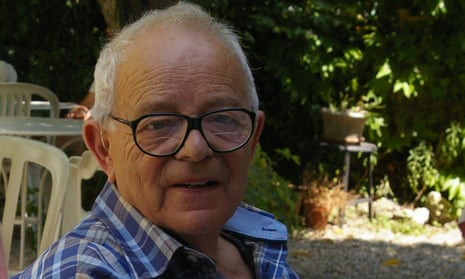My father, Tom Markus, who has died aged 95, was the first professor of building science at the University of Strathclyde in Glasgow, where he established a thriving research base and, inspired by his socialist politics and Catholic faith, made huge efforts to address housing problems in the city.
In 1971 he helped set up the Assist project in Govan to rehabilitate old tenement buildings. In 1979 he founded and chaired the Right to Warmth campaign, bringing together legal, architectural and medical expertise to push for improvements in cold and damp housing. He worked to bring an end to “slopping out” in Scottish prisons, and gave evidence in the House of Commons about the dangers of coating residential buildings in flammable material – in 1984, three decades before the Grenfell fire.
In all these campaigns Tom was questioning power. He believed the hierarchical hold of one group over another could only be countered by solidarity. In his book Order in Space and Society (1982), he demonstrated how buildings created ordered relationships.
He launched himself into campaigning and writing, and an abiding memory is of him coming home from yet another evening spent measuring the dampness in a council flat, where a child had been coughing and wheezing.
Born in Budapest, his father, Victor, owned an engineering company, Márkus Lajos, and his mother, Lili (nee Engel), was a ceramic artist. As a Jewish family threatened by growing antisemitism, they left Hungary in 1939, and came to Britain, where they found refuge.
Tom studied architecture at Manchester University, where he met Beryl McDermott, a law student, and they married in 1954. Both were part of a group of socialist and Catholic students and staff in Manchester, and he was baptised during this period. Their political commitment and religious faith underpinned much of their lives together.
From 1956 to 1964 he worked for the glass manufacturer Pilkington, developing an expertise in the technical aspects of building that would become the foundation of his academic career. He was appointed professor of building science at Strathclyde in 1966.
After officially retiring, he carried on teaching, examining, writing, researching and campaigning until he was about 90.
Beryl died in 2014, but Tom continued to take huge pleasure in family and friends. He is survived by six children, Mary, Kate, Daniel, Peter, Allan and me, and by seven grandchildren and two great-grandchildren.
